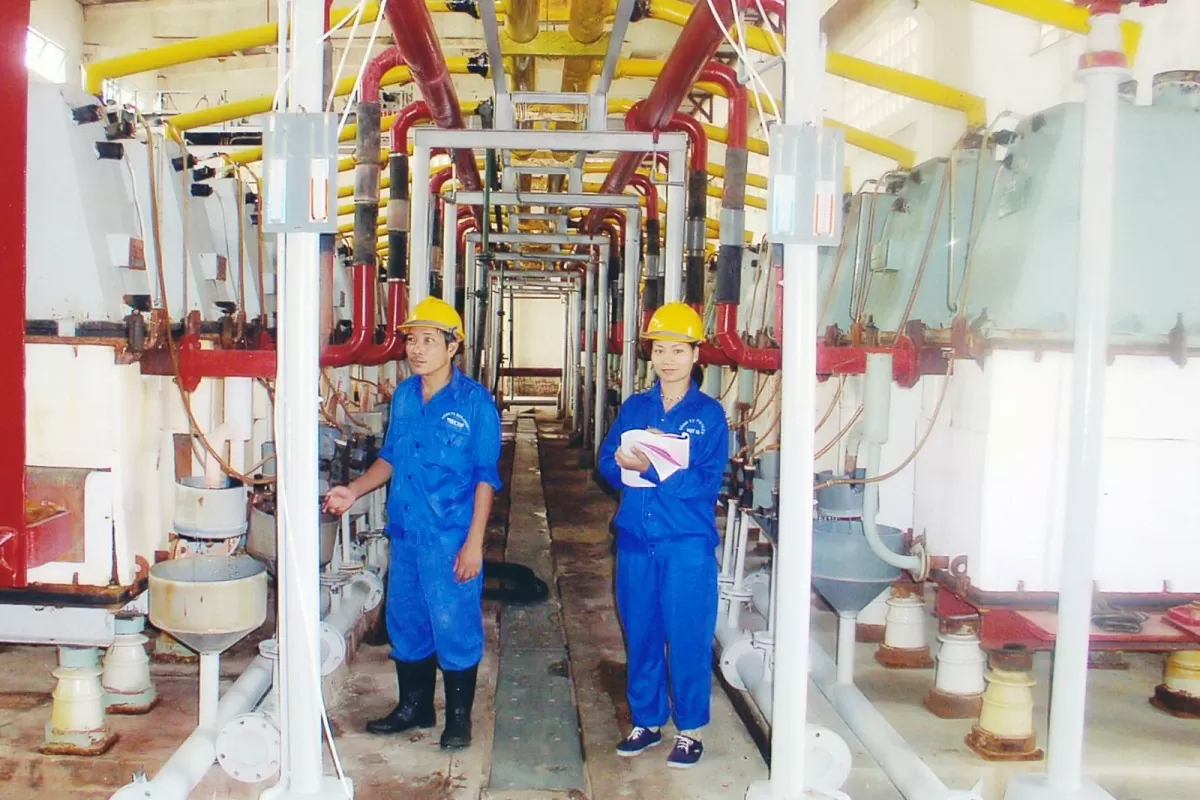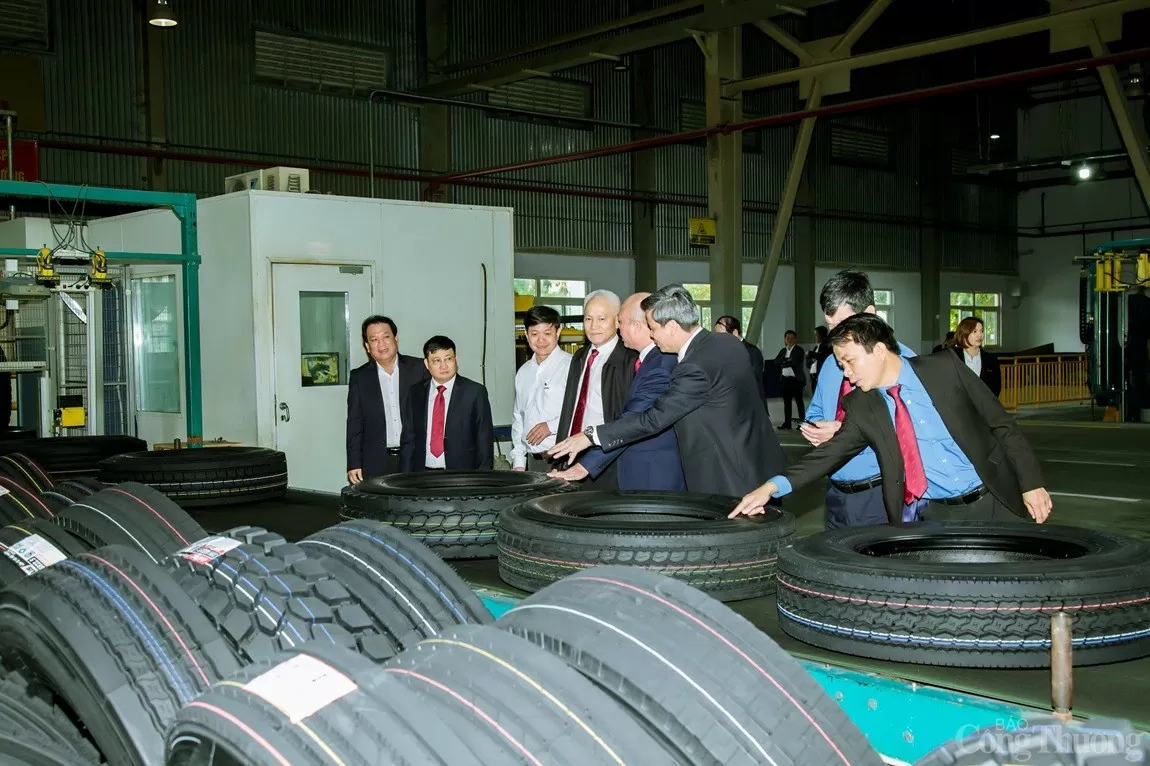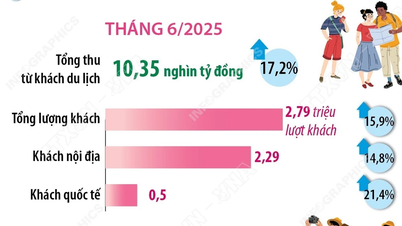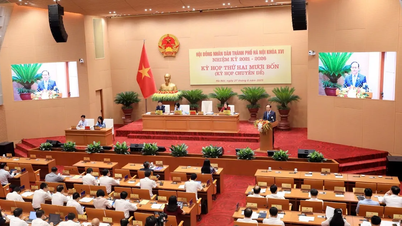Contributing to all aspects of economic and social life, the amendment of the Chemical Law is expected to bring breakthrough opportunities for Vietnam's economic growth.
Chemicals - an important industry
According to the Department of Chemicals ( Ministry of Industry and Trade ), chemicals are present in most areas of social life, the chemical industry has created many products, playing an increasingly important role in the industrial and economic development of each country. In particular, as life becomes more and more developed and civilized, the role and position of the chemical industry becomes increasingly important.
 |
| The chemical industry has created many products, playing an increasingly important role in the development of national industry and economy. Illustration photo |
In Vietnam, the chemical industry was formed and developed since the 50s of the last century, starting with fertilizer and consumer chemical factories in the North with the help of the Soviet Union and China with the aim of providing fertilizer and some chemicals for consumption. Through the stages of development, the chemical industry has made strong progress with its appearance changing significantly compared to the beginning.
Especially since the Law on Chemicals 2007, the Vietnamese chemical industry has increasingly developed and affirmed its important role, gradually modernizing, mastering technology, proactively producing raw materials and products for the domestic manufacturing industry, and moving towards export...
According to Ms. Nguyen Thi Theu - Chemical Industry Development Department (Department of Chemicals - Ministry of Industry and Trade), the chemical industry is a fundamental industry, accounting for 2-5% of the GDP of the entire industry with a growth rate of 10-11%/year. The labor force in the chemical industry accounts for 2.7 million people, accounting for 10% of the labor force of the entire industry. Labor productivity of the chemical industry accounts for 1.36 times the average labor productivity of the entire industry.
In particular, implementing the Party's policies and guidelines at the 13th National Congress, chemicals are identified as one of the fundamental industries, and developing the chemical industry is one of the key tasks and solutions to promote the country's socio-economic development.
Thus, it can be affirmed that chemicals play an important role, being the "foundation" for other industries, and "without the chemical industry, there would be no industry at all".
Despite its important role, according to economic experts, Vietnam's chemical industry has developed below its potential in recent times. In fact, statistics also show that, in general, although Vietnam's chemical industry has developed, applied many achievements, has many projects, production lines applying modern technologies, equipment, management and operation software, the vast majority still have many small-scale factories, technology is not really high, the rate of unskilled labor is still quite high, some places have not mastered the technology. The reason is that science and technology are not high, there is no source technology, lack of capital, modern factories with high technology, modernity requires very large costs that the private sector can hardly invest in; management level, policy mechanisms... and some shortcomings and negative aspects have not been thoroughly resolved.
 |
| Vietnam's chemical industry strives for an average growth rate of 10-11% per year. |
Increasing industry contribution with revised Chemical Law
To promote the development of the chemical industry in a more sustainable and environmentally friendly direction, in Resolution No. 124/NQ-CP dated September 3, 2020, the Government assigned the Ministry of Industry and Trade to preside over the development of the Strategy for the development of Vietnam's chemical industry to 2030, with a vision to 2040. The Strategy was approved by the Prime Minister in Decision No. 726/QD-TTg dated June 16, 2022.
The strategy for developing Vietnam's chemical industry to 2030, with a vision to 2040, has set out the direction for developing Vietnam's chemical industry as an important, modern foundation industry with a relatively complete industry structure, including 10 sub-sectors, focusing on the development strategy of a number of key sub-sectors: Basic chemicals, petrochemicals, technical rubber, pharmaceuticals and fertilizers. At the same time, reorganize existing production facilities in a concentrated and large-scale direction. Maintain and develop factories with advanced technology. Minimize the formation of new ones and gradually eliminate small-scale production facilities that use outdated technology, have low resource efficiency, poor product quality, and cause environmental pollution...
In particular, to increase the contribution of the chemical industry to the economy, implementing Resolution No. 41/2023/NQ-UBTVQH15 dated December 18, 2023 of the National Assembly Standing Committee on adjusting the Law and Ordinance Development Program in 2024, the Ministry of Industry and Trade is amending the 2007 Chemical Law.
Regarding the practical basis for amending the Chemical Law, according to Mr. Phung Manh Ngoc - Director of the Department of Chemicals - Ministry of Industry and Trade: The Chemical Law No. 06/2007/QH12 was passed by the 12th National Assembly in 2007, effective from July 1, 2008. The birth of the Chemical Law is an important milestone in the process of building and creating an official and unified legal corridor for chemical activities nationwide.
In fact, after 16 years of implementation, the implementation of the Chemical Law has brought positive impacts on the socio-economic development of the country. Specifically, in terms of economy, since the Chemical Law came into effect, the chemical industry has developed strongly, forming research organizations, production and business establishments in the fields of the industry, initially forming a number of petrochemical industrial complexes and a number of industrial zones and clusters with many chemical enterprises.
The chemical industry has maintained a stable growth rate over the years (average 10-11%/year), domestically produced chemical products have become more diverse in types, quality has improved, gradually approaching products in the region.
In terms of society, the Law on Chemicals and sub-law documents have formed a relatively comprehensive system of chemical management regulations from central to local levels. With the efforts of state management agencies, chemical activities have been strictly managed and increasingly put into order and discipline, the role and quality of chemical safety work has been enhanced, contributing to minimizing risks and negative impacts of chemicals on people, the environment, property, ensuring security and social order.
However, in addition to the achieved results, after 16 years of implementing the 2007 Chemical Law, certain shortcomings and limitations have been revealed. Specifically, in terms of general provisions, the 2007 Chemical Law has not clearly and precisely defined the scope and subjects of management activities; has not distinguished chemicals and chemical-containing products; has not specifically distinguished chemical production activities and chemical mixing and dilution activities; the concept of toxic chemicals is not suitable for reality...
Regarding the development of the chemical industry, the 2007 Chemical Law only regulates chemicals, including substances, compounds, and mixtures, which are understood as basic chemicals. Therefore, the regulations on chemical projects in the Law only apply to basic chemical projects.
To overcome these shortcomings, the revised Chemical Law, in addition to inheriting the positive aspects of the 2007 Chemical Law, also has new contents, suitable for the current reality and socio-economic development needs, while opening up new opportunities for the chemical industry to develop, increasing its contribution to the double-digit growth target for the 2026-2030 period.
| At the 8th Session, 15th tenure, the National Assembly discussed the draft Law on Chemicals (amended) in Groups and Halls; 69 opinions were expressed by National Assembly deputies, including 54 opinions expressed in Groups, 12 opinions expressed in Halls and 3 National Assembly deputies sent written opinions. The majority of opinions of National Assembly deputies agreed on the necessity of promulgating the Law on Chemicals (amended). |
Source: https://congthuong.vn/luat-hoa-chat-sua-doi-co-hoi-de-kinh-te-viet-nam-but-pha-372654.html








































































































Comment (0)